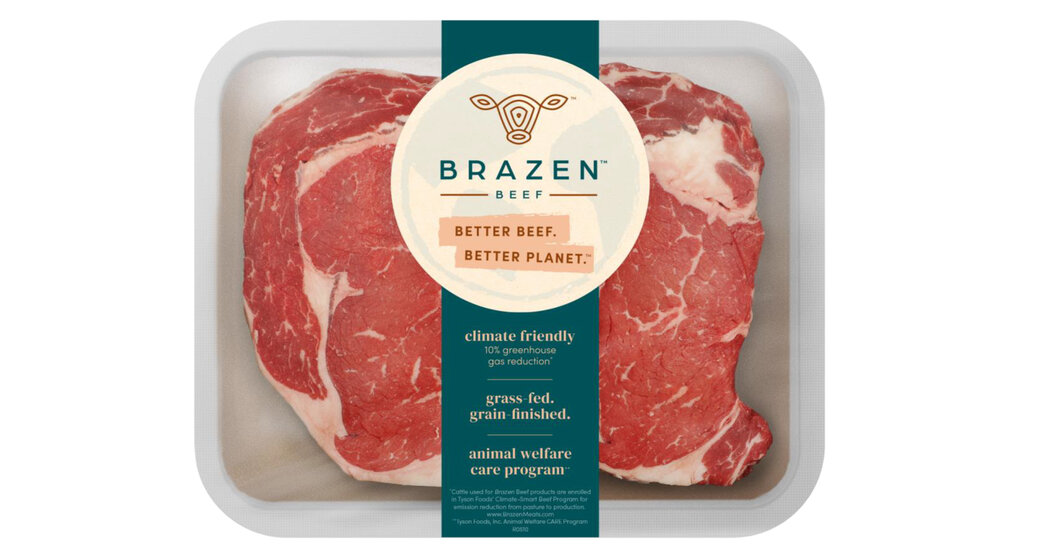An environmental group said the company, a major food producer, was misleading shoppers with its claims about eco-friendly practices.
A consumer-protection lawsuit filed Wednesday alleges that Tyson Foods is misleading consumers with claims about its efforts to curb greenhouse gas emissions.
Environmental Working Group, an advocacy group, accused the company of taking advantage of the “well-intentioned preferences” of shoppers by making false statements in marketing materials, like saying it was working toward “net-zero” emissions of greenhouse gases by 2050 and by advertising “climate-smart” beef.
Industrialized beef production, the lawsuit contends, will never be “climate-smart” because of the sheer volume of emissions produced in the process of raising cows on an industrial scale. It also argued that the company had shown no evidence of an effort to get to net-zero emissions, a term used by governments and companies to signal their climate goals.
“We are taking a stand to protect consumers and to demand transparency in an industry that significantly affects climate change,” Caroline Leary of EWG said in a call with reporters on Wednesday.
Tyson, based in Springdale, Ark., declined to comment on the specifics of the lawsuit. A company statement pointed to its “long history of sustainable practices that embrace good stewardship of our environmental resources.”
According to its website, Tyson produces about 20 percent of the beef, pork and chicken in the United States, as well as other foods under brands like Jimmy Dean and Hillshire Farm, and is one of the world’s largest food companies. The company detailed its plans to achieve net-zero emissions by 2050 in a 2022 sustainability report.
